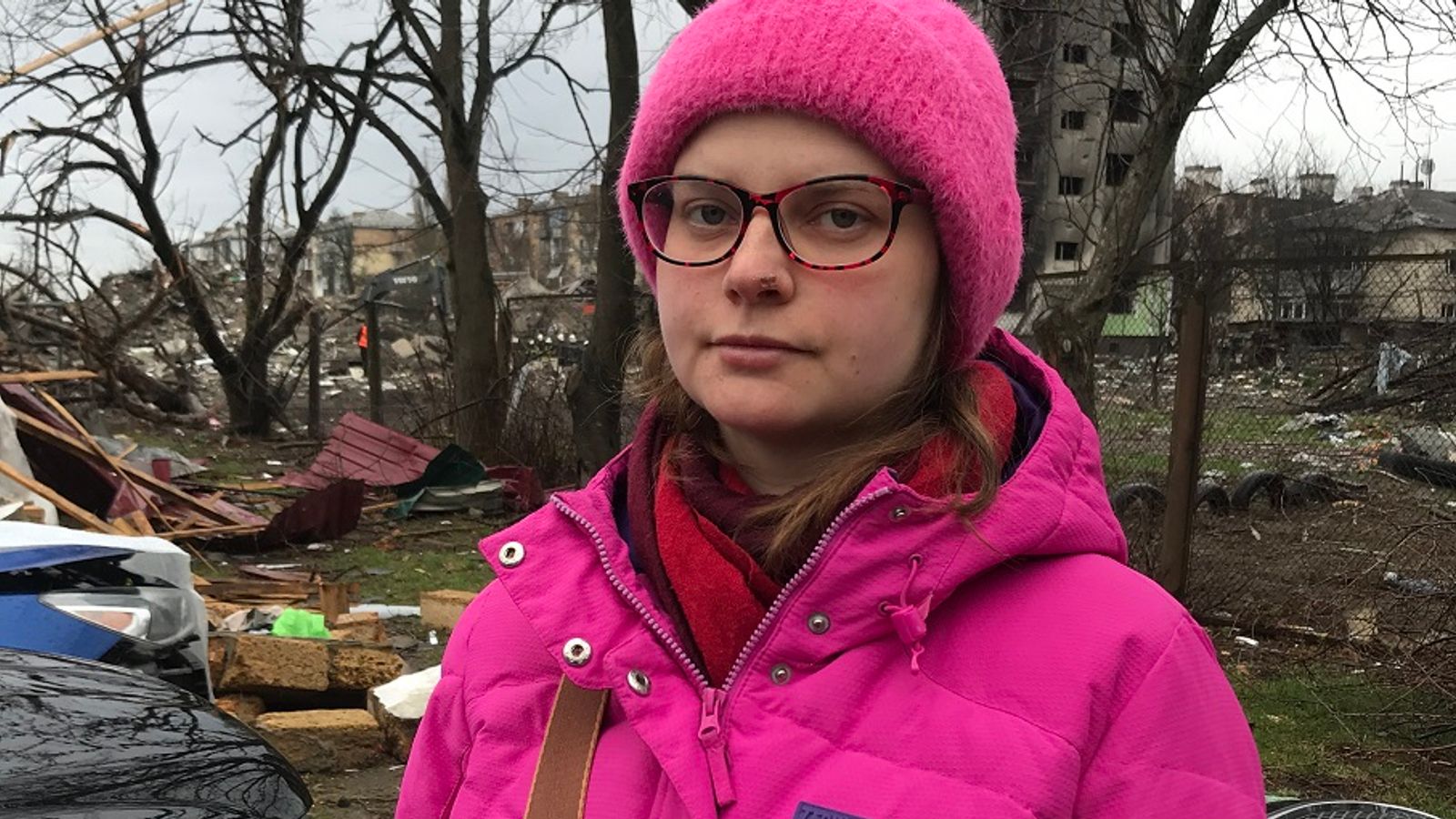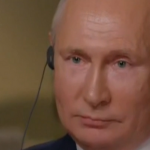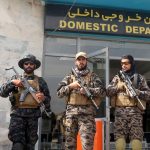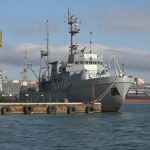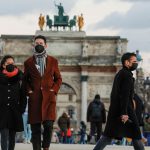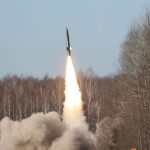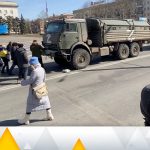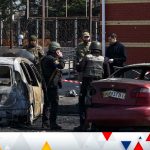Every day for the past five days a young woman has stood by the pulverised ruins of a tower block waiting for news about her mother, aunt and cousin.
A Russian airstrike on the building a month ago sliced it in half, obliterating the side where Anna Matviienko’s family had been staying.
She had been on the phone with Valentina, her mother, just 12 minutes earlier, discussing plans for how they could flee.
Describing their last conversation, she said: “We were sending them a route from Borodyanka to Kyiv, how they can escape. Many bridges and roads were broken so we sent them a map… and she said we are thinking how to escape.”
Since that exchange Anna, 32, said she has heard nothing.
Russian troops were in control of the town of Borodyanka, northwest of Kyiv, when the missile struck.
Ukraine war: Kramatorsk railway station attack survivors and witnesses describe terror on the platforms
Ukraine war: Boris Johnson calls Russian attack on railway station ‘unconscionable’ as Germany raises concerns over war crimes in talks
Ukraine war: Priti Patel apologises as figures show just 12,000 refugees have arrived under visa schemes
It meant it was impossible for her to reach the rubble from her home in the capital until the Russians finally pulled out last week.
Anna ventured back for the first time with her husband on 4 April, desperately seeking news about her mum.
Rescue workers started digging through the rubble two days later. It is one of five sites where they are digging for bodies after Russian missiles pulverised this town.
The scene looks like the aftermath of a huge earthquake, with residential blocks crushed, and those left standing turned black from fire, windows shattered, insides gutted.
Wearing a bright pink coat, Anna stood next to a heap of broken, grey concrete that framed a deep pit punched into the earth, waiting for news.
“We will also come tomorrow,” she said, speaking to Sky News on Friday.
“It is hard because we don’t know anything exactly – whether they are alive or not. We cannot find them anywhere.”
She described the agony of her wait. “Of course it’s difficult,” Anna said, her voice starting to tremble, tears in her eyes
“March was very difficult. The evenings especially because that is when I talk with mum and now I can’t call her. It is not easy if you cannot talk to her.”
She said a body of a woman was found amid the wreckage, with her mother’s identity card lying next to it.
She learnt to her horror about the discovery in a Facebook post, but when she studied the picture she realised it was not Valentina, though says it could possibly be her aunt.
The authorities said they took the body away but she has not been able to find it.
“The body was over there,” Anna said, pointing to a patch of dirt littered with debris, such as shoes and computer keyboards, blasted out of people’s home and covering the ground.
A short walk from the rubble was a badly damaged black car.
It belonged to her cousin, Kiril, and was going to be used in the escape plan. Instead it stood stationary, windows smashed in by the force of the blast.
Anna realises if her mum, aunt and cousin had been in their ground floor apartment there is little chance they would have survived.
But she is holding out hope that perhaps they avoided the blast and may have been forced by Russian soldiers to move across the border into neighbouring Belarus and Russia.
Anna said she had been told some residents had their phones and passports confiscated and were forcibly removed.
She asked if she could relay a message to her family just in case that is what happened to them.
Speaking directly into the camera, Anna said: “Mum, Auntie and Kiril, if you are listening my message is that we are looking for you and we definitely will find you.
“It doesn’t matter where you are in Belarus or Russia, we will find you. I love you.”
